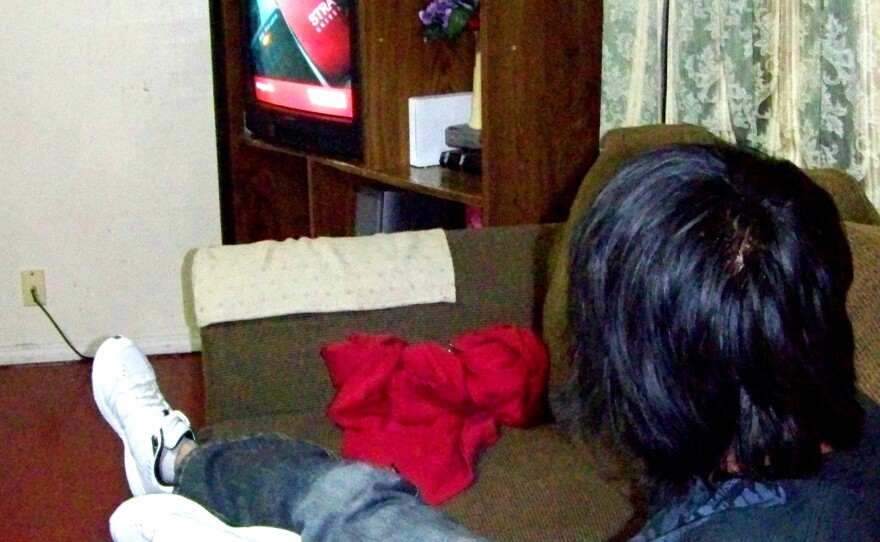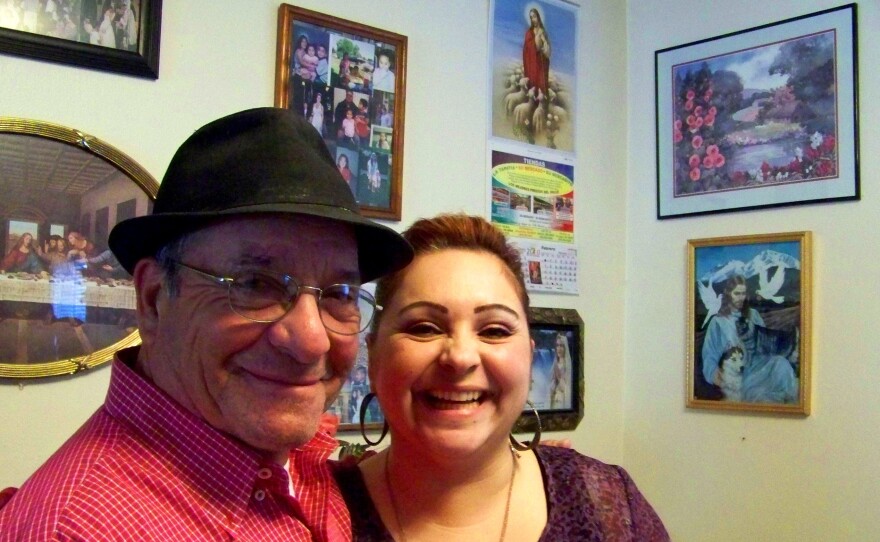MABTON, Wash. — Most American families have some kind of immigration lore — think Ellis Island, the Oregon Trail and slave ships. At dinner tables across the Northwest, some Mexican-American families tell their own vivid tales. They regale each other with stories of relatives swimming to better opportunities across the Rio Grande or crossing the desert at night.
Yes, these crossings are illegal, but they also are part of a family’s history. If the U.S. Congress adopts comprehensive immigration reform this year, these types of border stories could begin to fade.
I met Antonio at a poetry performance competition. He recited “Bent To The Earth,” by Blas Manuel De Luna. The poem relates a story of Mexicans trying to get into the U.S., and getting stopped by the border patrol.
As each word rolled out of him, Antonio’s face told me this was more than just a meaningful poem. This was his life.
“I was a child that had seen what a piece of polished wood could do to a face. Who had seen his mother about to lose the one she loved. Who had lost some friends, who would never return. Who later that morning bent to the earth and went to work.”
We’re not using Antonio’s real name because of his parents' legal status. He’s 17. His parents leave for work early, and get back late. He sports $10 white sneakers and a blithesome smile.
We’re in his house. Two rooms, one bathroom. Six people, one baby. Sometimes, on Saturday mornings Antonio says they gather round hot chocolate and cookies and his parents tell stories.
Here’s one: On his mother’s trip from Mexico, her group had to cross the desert. It was hot in the day and very cold at night.
“They went over a river and so they were really wet. So their clothes, if they kept their clothes on they were going to freeze," Antonio explains. "They had to take off all their clothes except their underwear just so they didn’t freeze to death.”
Antonio knows that these stories of overcoming adversity are important to his family — he has his own stories of sleeping in cars. But his younger brothers and sisters — including his baby brother — are are farther away from those crossing stories.
They’ve only ever known a roof overhead and new shoes. He worries as he gets older, “Maybe I’d lose those traditions all together. I’d hate to lose being who I really am.”

Across the Columbia Basin, in another small town called Mabton, I meet a family who also has a dramatic border crossing story.
Luis Vargas is some storyteller. His eyes open wide, and his voice — sometimes down to a whisper — relates the drama. He has huge scars to prove his tale. One runs long, flat, from mid-chest to his belly button. Another runs along the inside of his left arm.
His daughter Maria Rodriguez translates as Vargas tells the story of being packed into a 1968 Chevy truck with six others -- shoulder-to-shoulder like sardines. A coyote or human smuggler was at the wheel, U.S. bound. They passed through a checkpoint, but soon after a state patrol officer spotted the men in the truck.
“... the state patrol follows the coyote right away," Vargas says through his daughter. "So they’re literally doing a Too Fast Too Furious kind of races back and forth side-to-side. The state patrol is on the side on the speaker going 'pull over, pull over.'"
The coyote smuggler tries to make a tight turn at high speeds, but his back wheels go off an embankment, and then the truck starts to tumble.
“So then my dad says he remembers most of the men flew off. Because they are going downhill," Rodriguez says. "He managed to fly up and then down on the truck again. But the second time he managed to fly off, his stomach landed on a ginormous rock. And he says he remembers laying there. And according to how he used to tell us the stories you know how in the cartoons when someone lands and there are the little stars floating around? He goes, 'I swear to you I saw stars.'”
Maria Rodriguez says she wants her descendants to always remember her father’s stories — but she admits it’s going to be hard to keep them relevant to American-born generations.
“Kids are born into money. But I’m actually glad that I was born poor," she says, "Or should I say U.S. poor. When you know you don’t have it, and you finally get it, you appreciate it.”
For his part 17-year-old Antonio is grateful for the life his parents have given him. He says maybe it’s natural the stories may fade after generations.
“I think they really want us to know what its like," Antonio says. "They want us to know even though they can’t offer us the world, they give us more than they could have ever wished for.”
His parents may never earn much more than minimum wage. But the story’s not finished. Antonio hopes to become a biomedical engineer. A junior, he’s already won a couple of scholarships for college.
Anna King is the Richland Correspondent for the Northwest News Network.






